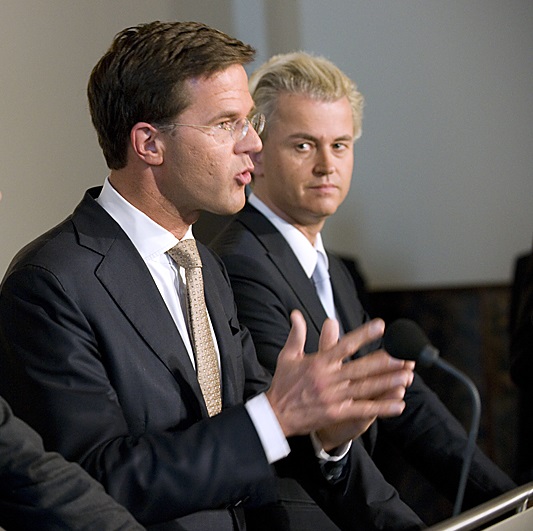As a wave of populism sweeps from Donald Trump’s Oval Office to the Brexit-ravaged headquarters of the European Union in Brussels, observers look to next week’s Dutch elections. Current polls show Geert Wilders and his Party for Freedom (PVV) slipping a few seats behind Prime Minister Mark Rutte’s People’s Party for Freedom and Democracy’s (VVD) – but, like Donald Trump, Wilders could outperform his polls. Bloomberg News describes the March 15 election as a “bellwether for Europe’s populist movements.” Elections later this year will define the success of Marine Le Pen’s National Front in France and the extent of backlash against Germany Chancellor Angela Merkel.
In a new analysis for Religion & Liberty Transatlantic, Vincent Harris writes that one key to the election may be a little-known economic initiative that helps citizens in Dutch “flyover country” find work – just across the border in Germany:
Removing obstacles for Dutch citizens in border provinces to enter the job market in Germany has become a priority in recent years. This was originally born out of necessity to fight high unemployment in the provinces, since the unemployment rate in Niedersachsen, just across the border, is much lower. In schools across these provinces, German as a second language is finally being taken seriously.
The website werkeninduitsland.nl (work in Germany) was launched in May 2016. Since then, 170 unemployed from the northern border provinces Groningen and Drenthe found work across the border. While a modest beginning, the policy has potential to expand. …
The underlying pursuit of the inclusion of all citizens in the workforce, regardless of background and ability, should not be overlooked. It reflects the urgency in Dutch politics to find a pragmatic and realistic path that takes specific concerns of citizens seriously, while at the same time remaining fully engaged within the international realm. One political leader used Trump’s victory in “flyover country” to drive home the point that The Hague should pay attention to what’s going on in these rural provinces, the Dutch equivalent. The example set by these stable regional coalitions could well be the kind of commonsense panacea that current Prime Minister Mark Rutte’s next coalition government will build on and his People’s Party for Freedom and Democracy’s (VVD) public image: a practical approach that reconciles opposing viewpoints and mitigates the tensions in Dutch society at large.
This cross-border economic engagement suggests another aspect of Rutte’s ideology: he is comfortable leading a Netherlands that is engaged with the EU. Harris writes:
Emphasis on the importance of the post-WWII transatlantic security framework has always been a hallmark of Rutte’s People’s Party for Freedom and Democracy (VVD). Rutte’s effort to get parliamentary approval for the EU deal on Ukraine, in spite of its rejection by 64 percent of Dutch voters in a non-binding referendum last April, should be understood within this tradition. No wonder he proposed himself as bridge-builder between the EU and the U.S. after Trump’s victory in November.
Harris describes how Rutte is handling the key voter concern over maintaining Dutch culture in the face of mass, unassimilated Muslim integration and how the hidden advantages his razor-thin political coalitions give him in this election in his new article.
You can read his full analysis here.
(Photo credit: Richard van Elferen. Cropped and modified for size. CC BY 2.0.)
